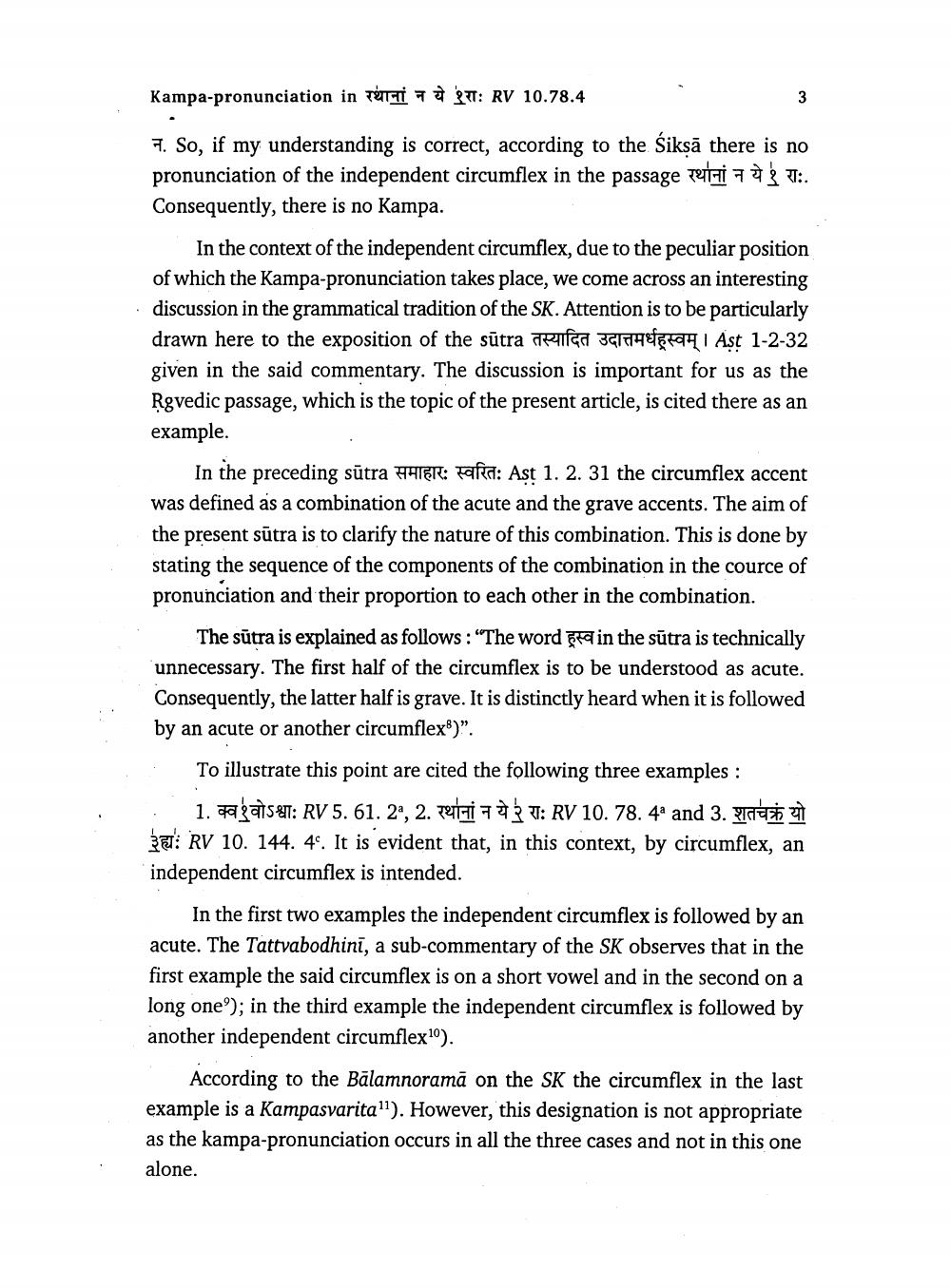________________
Kampa-pronunciation in TT 7
T: RV 10.78.4
7. So, if my understanding is correct, according to the Siksā there is no pronunciation of the independent circumflex in the passage रथानां न ये १ रा:. Consequently, there is no Kampa.
In the context of the independent circumflex, due to the peculiar position of which the Kampa-pronunciation takes place, we come across an interesting discussion in the grammatical tradition of the SK. Attention is to be particularly drawn here to the exposition of the sūtra prifca 3GITTEE 94 Ast 1-2-32 given in the said commentary. The discussion is important for us as the Rgvedic passage, which is the topic of the present article, is cited there as an example.
In the preceding sūtra HER: Tafa: Ast 1. 2. 31 the circumflex accent was defined as a combination of the acute and the grave accents. The aim of the present sūtra is to clarify the nature of this combination. This is done by stating the sequence of the components of the combination in the cource of pronunciation and their proportion to each other in the combination.
The sūtra is explained as follows: "The word ea in the sūtra is technically unnecessary. The first half of the circumflex is to be understood as acute. Consequently, the latter half is grave. It is distinctly heard when it is followed by an acute or another circumflex)".
To illustrate this point are cited the following three examples :
1. cagatse: RV 5. 61. 2°, 2. eti 3D: RV 10. 78. 49 and 3. Ynet 27 a RV 10. 144. 45. It is evident that, in this context, by circumflex, an independent circumflex is intended.
In the first two examples the independent circumflex is followed by an acute. The Tattvabodhini, a sub-commentary of the SK observes that in the first example the said circumflex is on a short vowel and in the second on a long one'); in the third example the independent circumflex is followed by another independent circumflex').
According to the Bālamnoramā on the SK the circumflex in the last example is a Kampasvarita"). However, this designation is not appropriate as the kampa-pronunciation occurs in all the three cases and not in this one alone.




